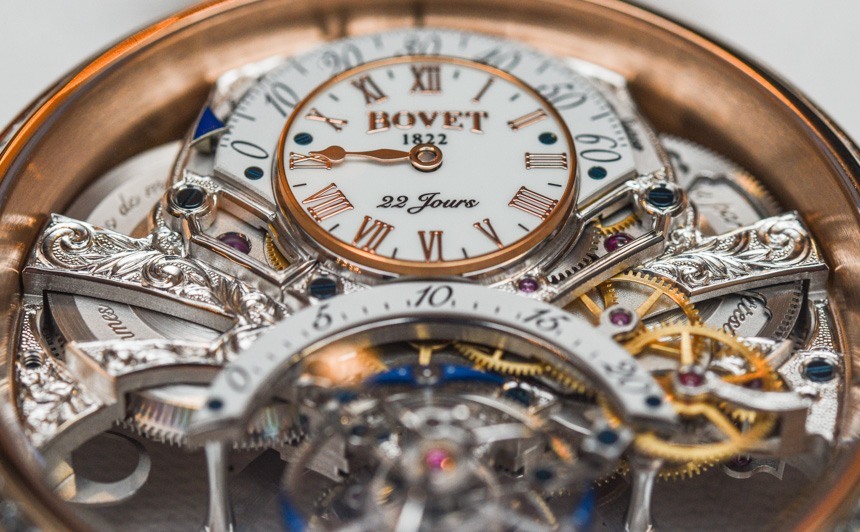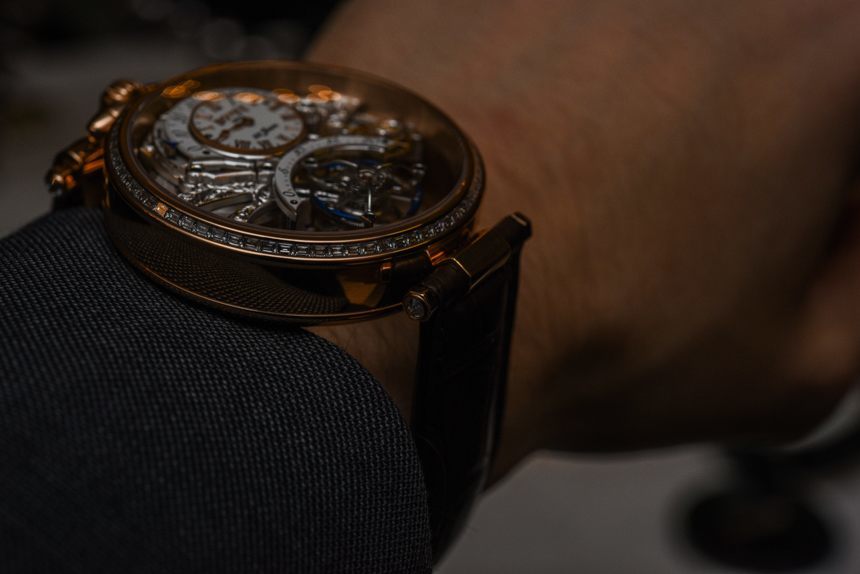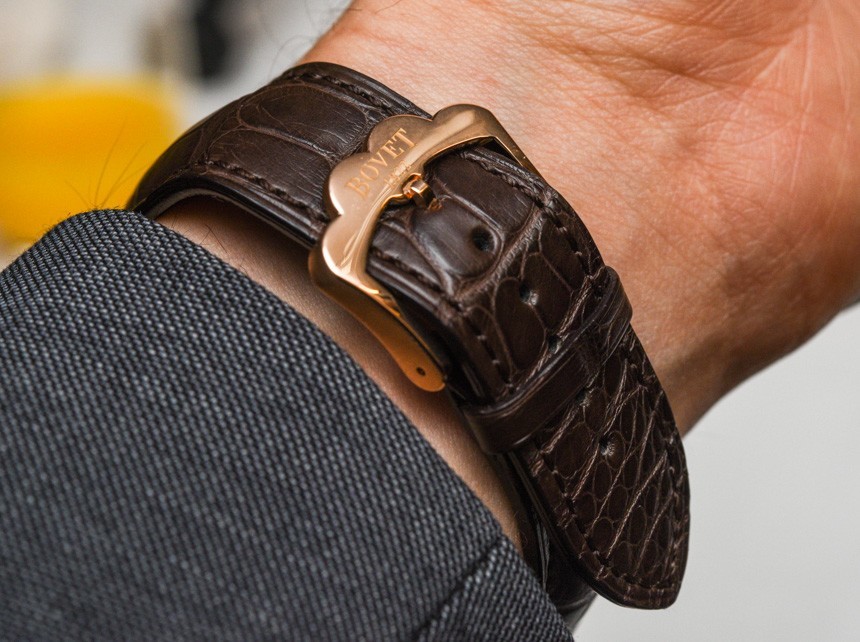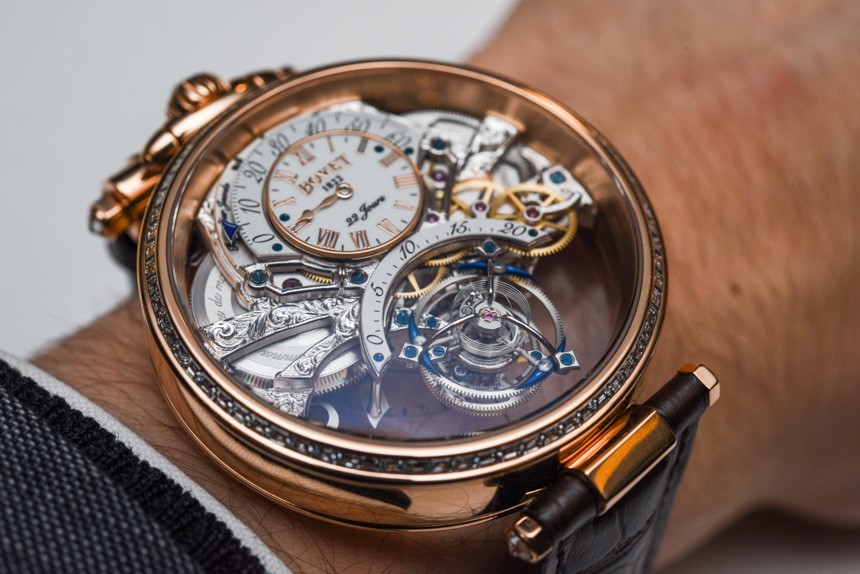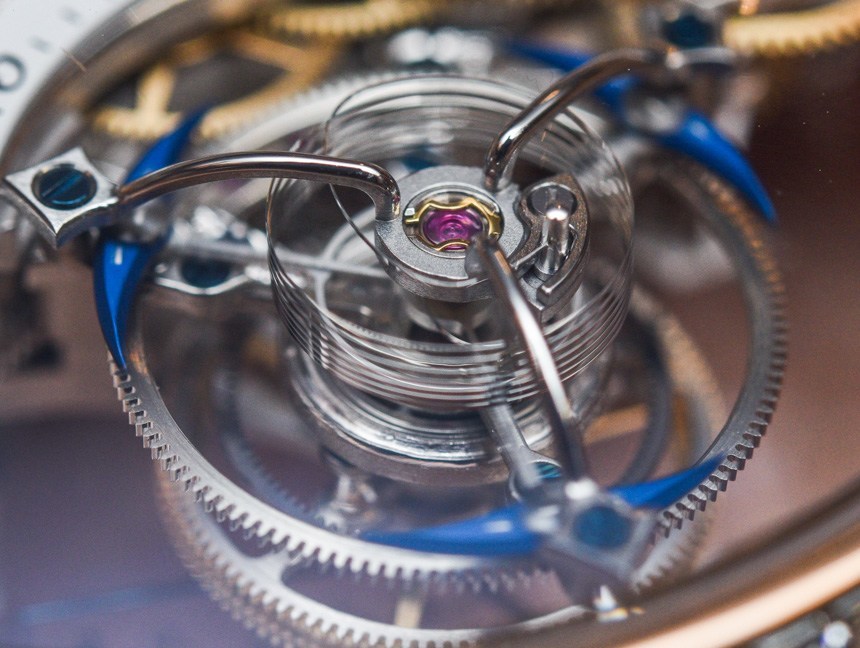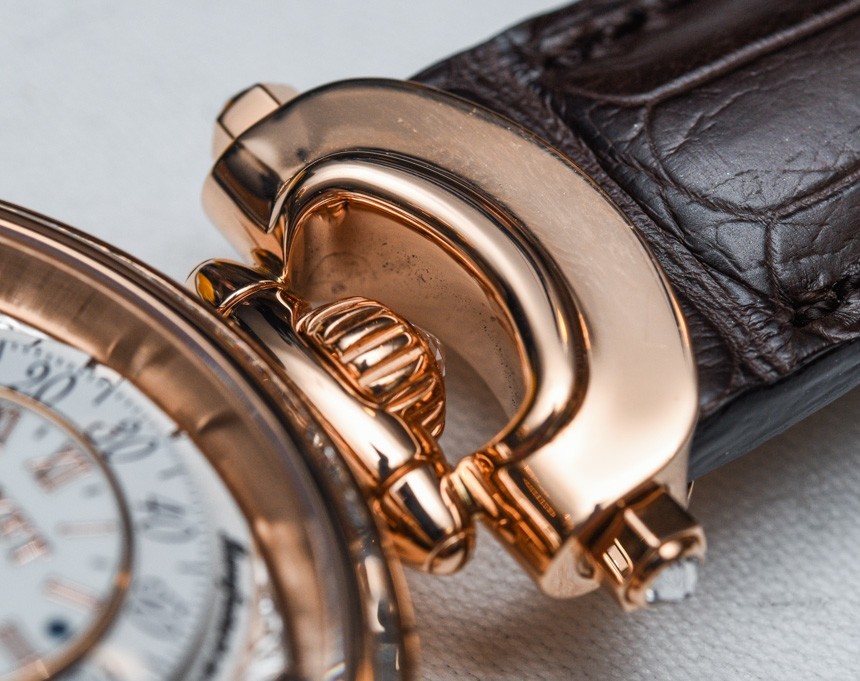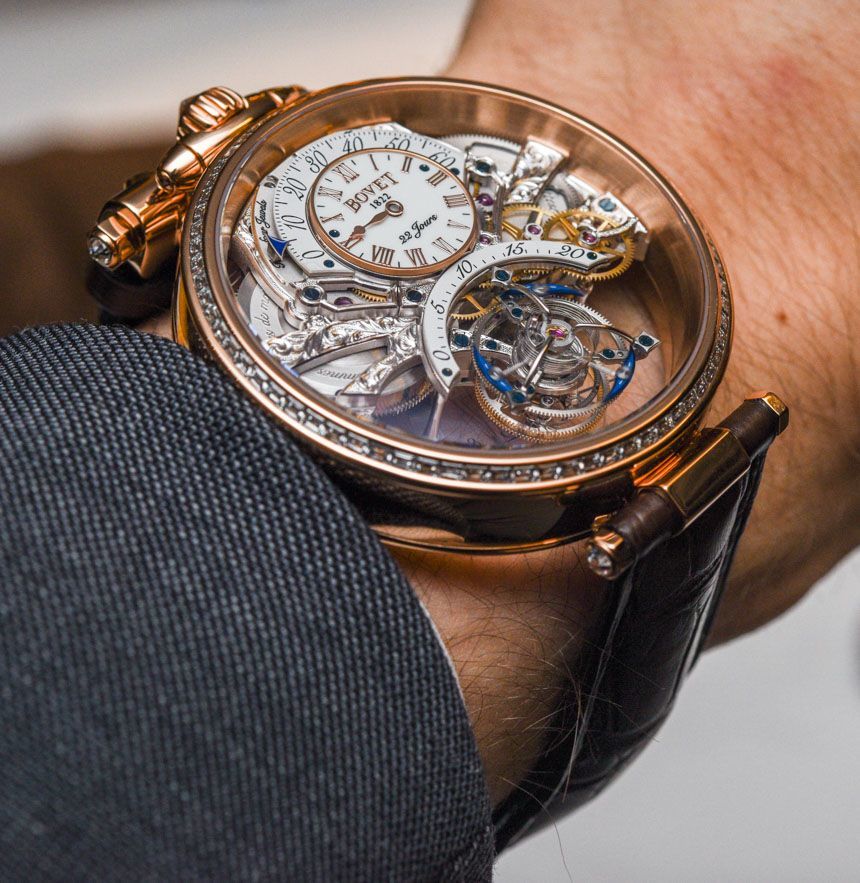
It is impressive the number of high-end watches that Bovet comes out with on an annual basis. Among the most complicated models they have recently released, most of them have Amadeo-style convertible cases, and many fall under the Virtuoso family – like the Bovet Virtuoso VII that I reviewed here. This model looks a bit like an Amadeo Virtuoso piece, but isn’t; instead, what we have here is the Bovet Amadeo Fleurier Tourbillon Braveheart – and it feels a lot like a Virtuoso but with a cooler name. Let’s check out what interesting surprises Bovet put into this rather exclusive timepiece.
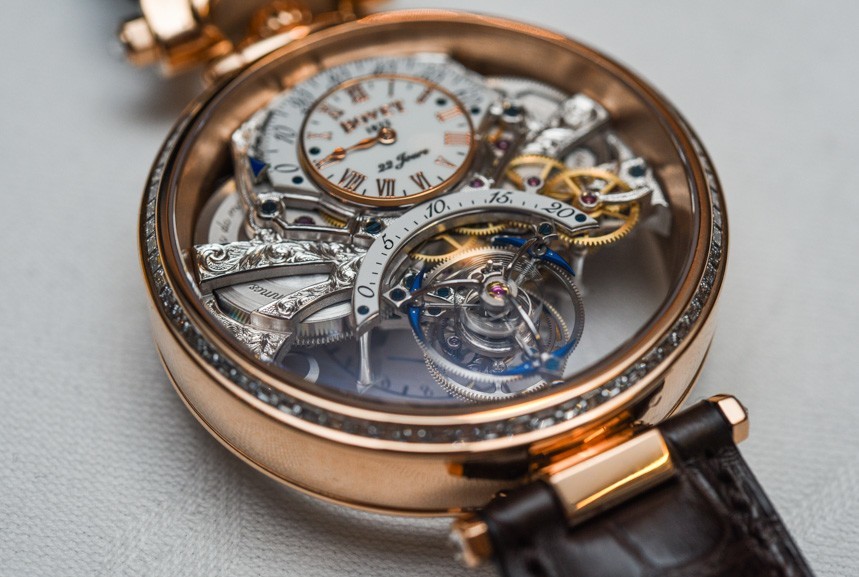
The name “Braveheart” conjures up a lot of memories for me – all of which revolve around the classic Mel Gibson movie about him fighting the English in Scotland. I think of the great fight scenes, the cool face paint, and the incredible sound track. Sadly, the masterpiece of a score was done by James Horner who recently passed away, quite young, actually. I had a chance to meet him one time and he was a super sweet guy. Anyhow, knowing that most people would imagine the film, what relevance does “Braveheart” have to this watch?
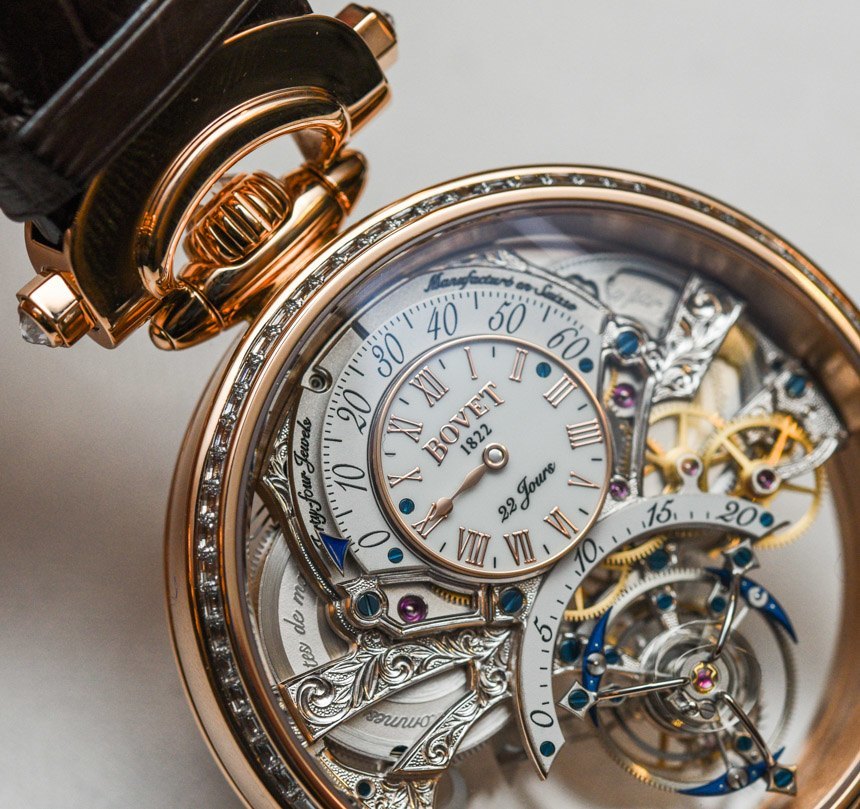
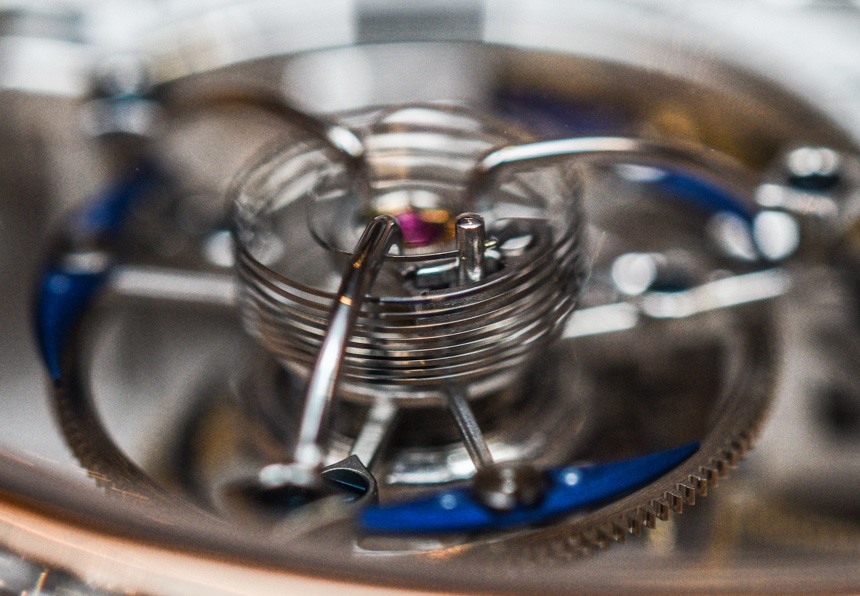
I’m actually not entirely sure, but I think it has to do something with the fact that this watch doesn’t use a regulation system like that in most other watches – and there is a series of at least three important parts to it. First is the fact that rather than using a traditional hairspring like most mechanical watches, the Bovet Amadeo Fleurier Tourbillon Braveheart uses a cylindrical hairspring as part of the regulation system of the watch, which timepiece lovers also often happen to warmly refer to as the “heart” of the watch. Is a cylindrical hairspring “braver” than a standard flat one? Maybe, if you are a watchmaker…


Does a cylinder-shaped hairspring do something different or better than a flat one? Well, theoretically, a cylindrical hairspring offers a bit more isochronism, which means more consistent accuracy over time. You might recall seeing cylindrical hairsprings on other watches from companies such as the Jaeger-LeCoultre, with the Duometre Spherotourbillon and the Master Grande Tradition Tourbillon Cylindrique Quantieme Perpetual Calendar. In terms of real-world performance, I don’t really know if the Bovet Amadeo Fleurier Tourbillon Braveheart or other timepieces with cylinder-style hairsprings are more accurate, but they look really cool, and when anything in a mechanical movement appears more three-dimensional, we all benefit as a result.

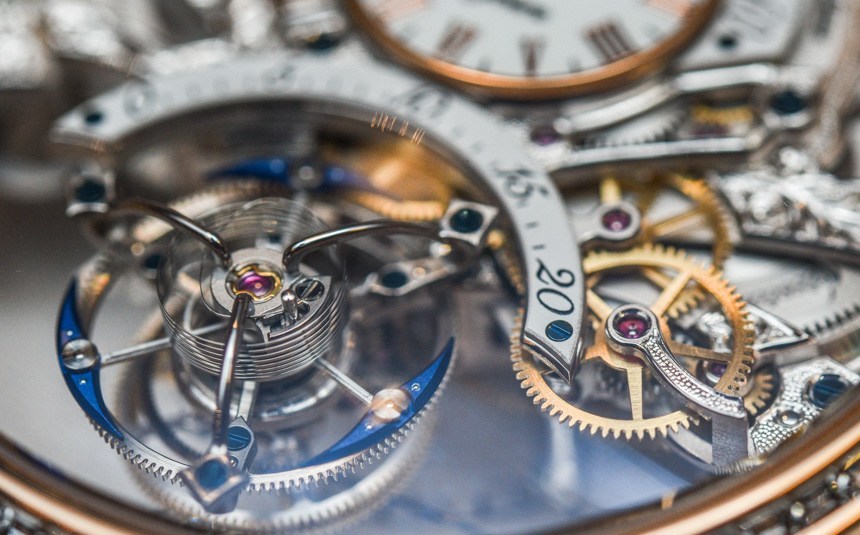
The second interesting element to the in-house made Bovet Dimier caliber 17BM02AI22J (sexy name, right?) movement is the fact that it also doesn’t use a traditional balance wheel. In fact, it isn’t really a wheel at all, but rather, a “felly.” This three-prong balance device has three weighted sides, and the idea was to both reduce weight and improve aerodynamics to reduce air drag. Bovet also designed the “balance felly” to be fully adjusted for inertia to ensure the best performance. This patented device within the movement is a further point of visual interest and mechanical distinction helping the beating heart to be that much more brave.
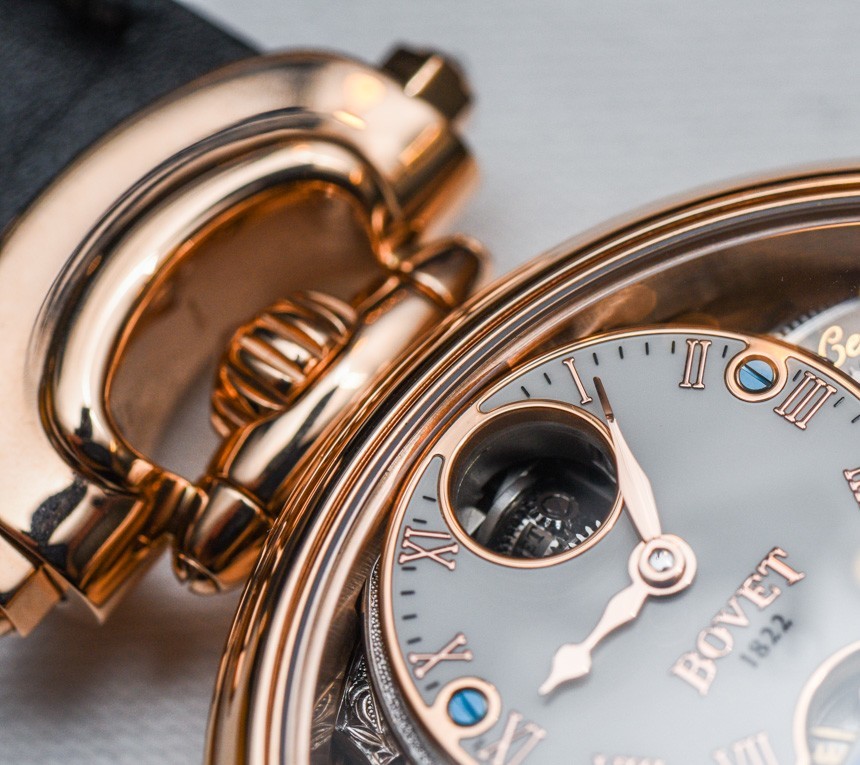
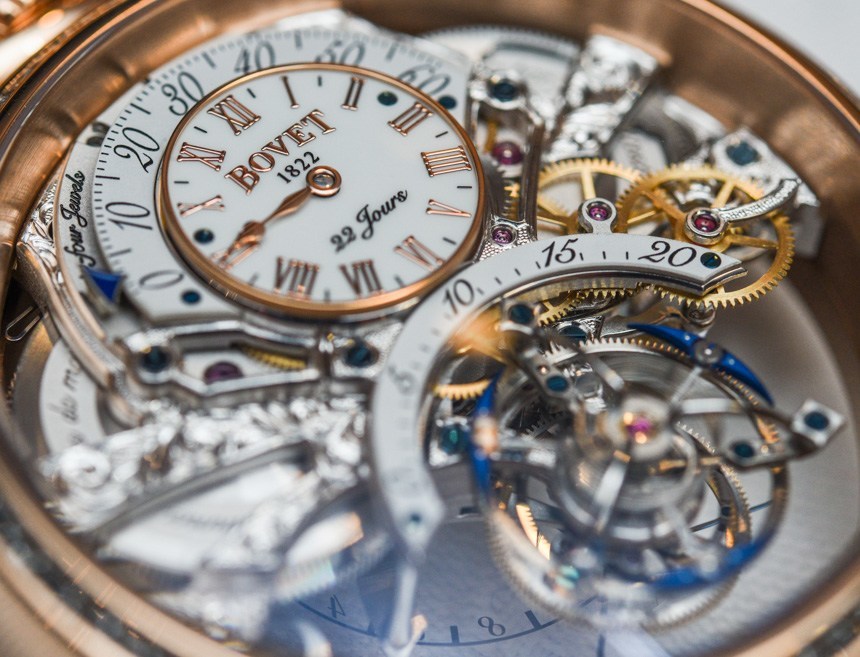
Of course, the entire regulation system spins on its own axis, as it is a tourbillon. It also happens to be a flying tourbillon with a new system (also patented by Bovet) which is designed to increase efficiency as well as improve the view of the tourbillon from either side of the case. Recall that because this Bovet Amadeo Fleurier Tourbillon Braveheart watch has an Amadeo-style case, the wearer can choose to wear the timepiece with either side being on top… and yes, the watch has a dial to read the time on each side.
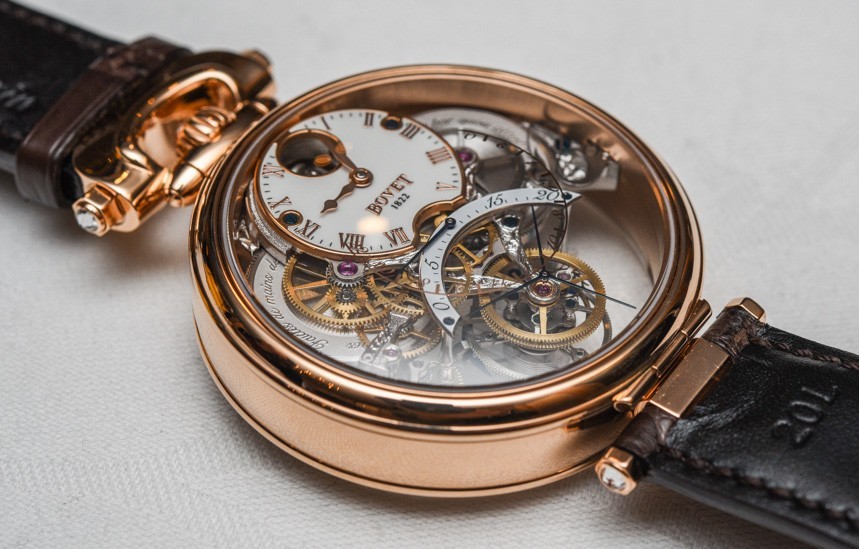
All of the above areas of uniqueness are said to be about improving chronometric performance, but of course, Bovet (like most watch makers) does not make actual claims about accuracy. In a sense, to most collectors, the actual performance is less important than the idea that the movement was designed to perform better and is thus unique (and has an interesting story). I’d actually like to see a return to brands mentioning actual performance ratings rather than merely waxing poetic on how hard they worked to create an accurate watch. It Is like they get the consumer all excited about this cool technology to increase the accuracy of a mechanical watch and there is no reward at the end of explaining how accurate they are.
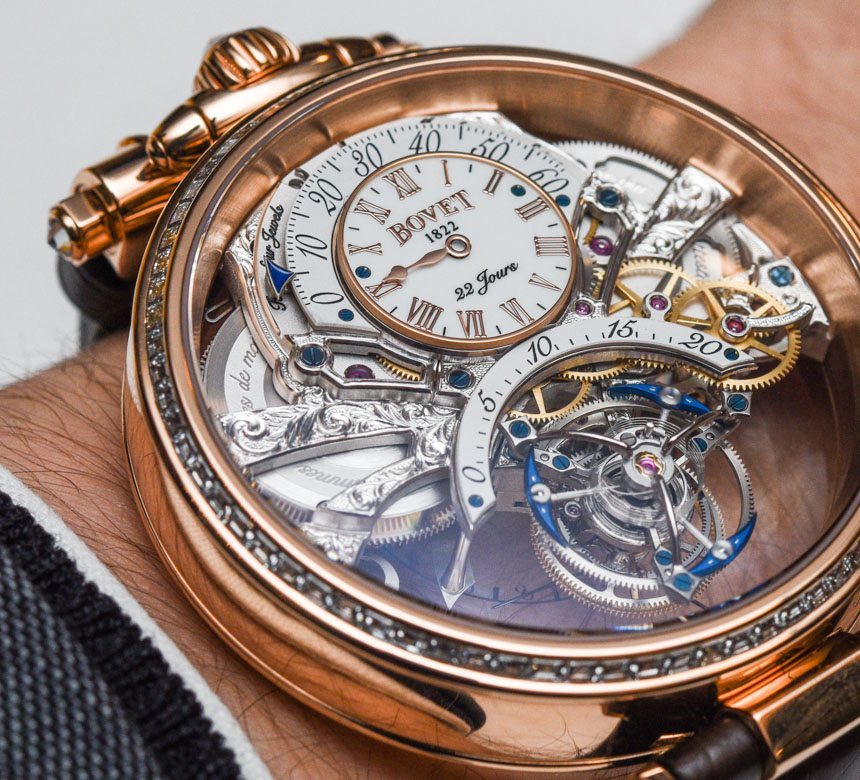
So we will never know if the six patented elements inside of the Bovet Amadeo Fleurier Tourbillon Braveheart make for a truly high-performance mechanical timing machine or rather one that is just designed to theoretically work better. Despite the performance enhancing tech, the movement inside of the Bovet Amadeo Fleurier Tourbillon Braveheart actually has a rather low 18,000 bph (2.5Hz) frequency. If the watch had all that new stuff and was at least a 4hz movement, I think I would be a bit more impressed.
Nevertheless, the manually-wound movement does have a long 22 days of power reserve (along with a handy power reserve indicator). More so, the movement displays the time differently on each side of the watch. One has a dial for the time with traditional hour and minute hands, while the other side has a traditional hour hand that is topped with a retrograde minute hand. The movement also happens to be quite beautiful not just in design but also in decoration.
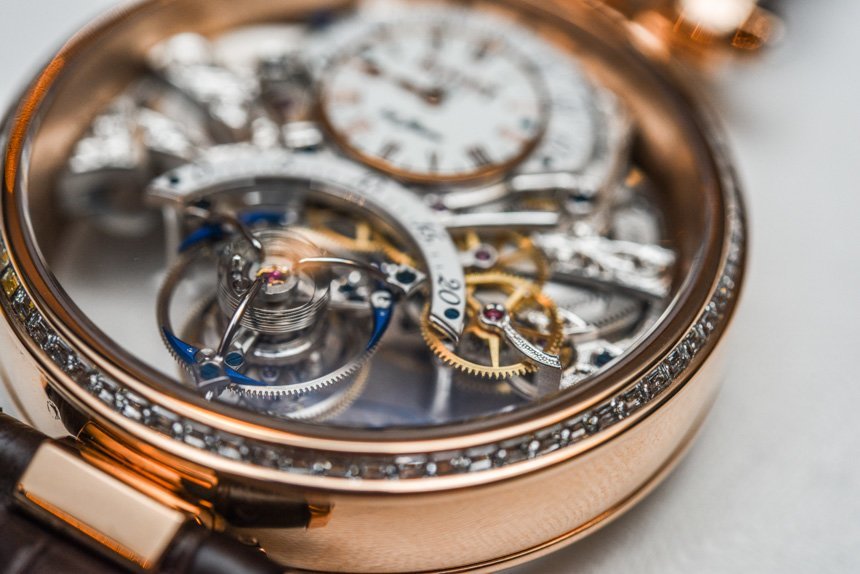
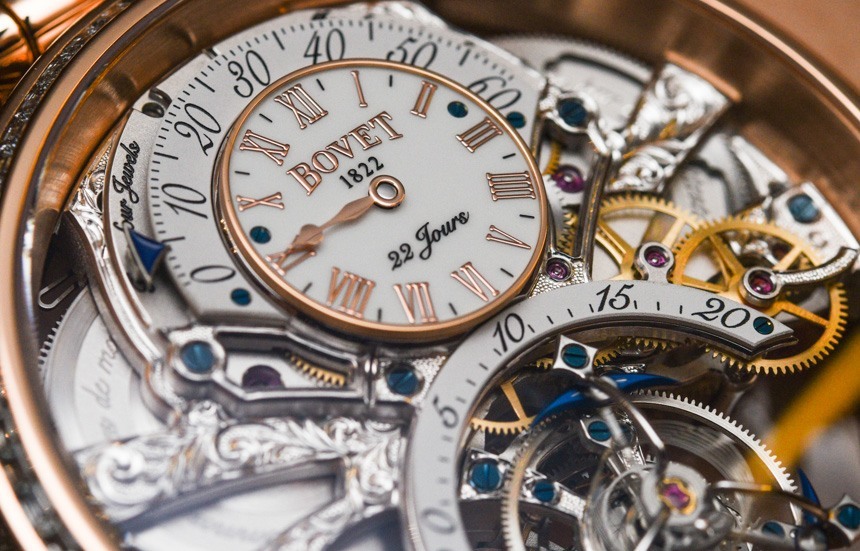
On the latter front, you have a welcome amount of polishing and finishing, but also some lovely hand-engraving – which, thankfully, doesn’t feel like “too much.” Also, note the view on one side of the dial of the crown winding system that uses an interesting looking “spherical” gear to wind both of the large mainspring barrels at the same time. Given the dual-sided and skeletonized view of the movement, you can not only see right through it, but you can also see the movement’s operating parts in extremely exposed detail.
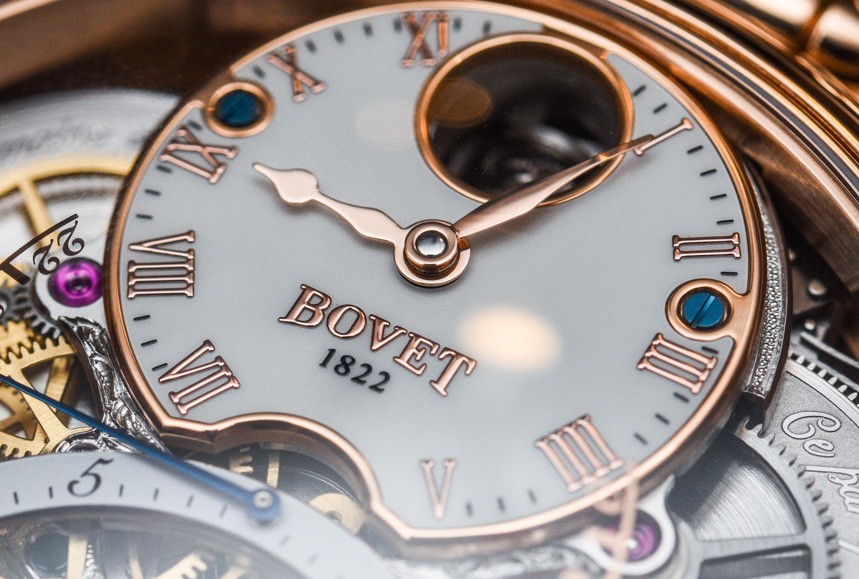
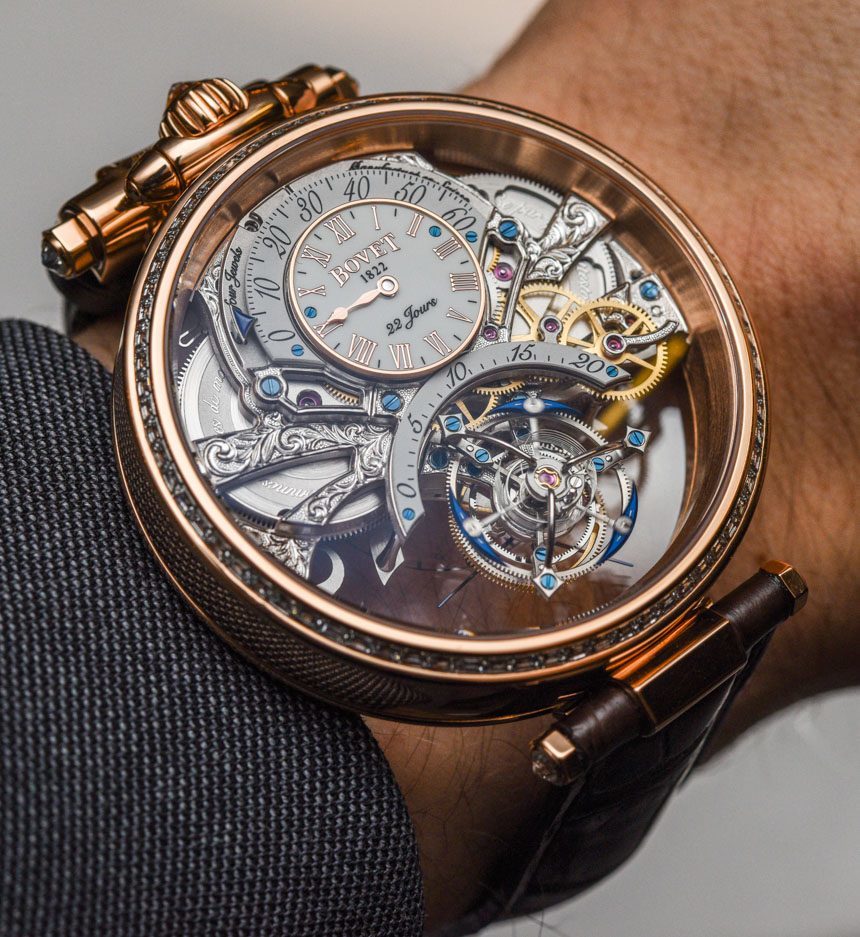
The Bovet Amadeo Fleurier Tourbillon Braveheart case is a larger 45.2mm wide and available in 18k red gold, 18k white gold, or platinum. Moreover, among those models are a range of limited edition or piece unique models going up to over a million dollars in price. Again, the Amadeo-style case is designed to be convertible, which means you can wear the watch with either side up, and use the watch as a pocketwatch, pendant, or desk clock. The Amadeo case is, of course, inspired by traditional pocket watches which one reason why the crown and “ribbon-style” crown guard are at 12 o’clock.

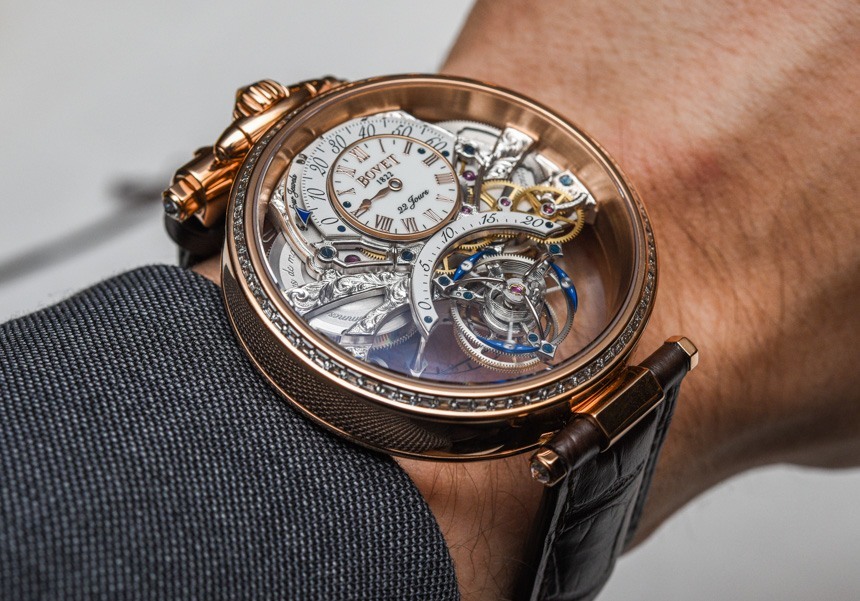
Impressive and interesting, the Bovet Amadeo Fleurier Tourbillon Braveheart watch is nevertheless exclusively an exotic treat at an exotic price. I don’t know if I’d wear one everyday (assuming I could afford it) but somewhere among these many interesting and nicely detailed tourbillon watches made in-house at Bovet is something for every aspirational (or actual) luxury watch owner. All the iterations of the watch are limited editions of 30 pieces, and there is one piece unique model in platinum with a matching bracelet that is covered with diamonds. Price for the Bovet Amadeo Fleurier Tourbillon Braveheart watch as seen here is $557,700 in 18k red gold. It is $569,200 in 18k white gold, and models with diamonds range in price from $632,500 – $646,600. The piece unique Braveheart in platinum (with bracelet) and diamonds is $1,161,500. bovet.com


